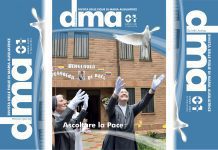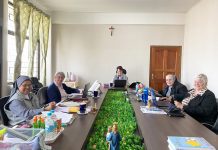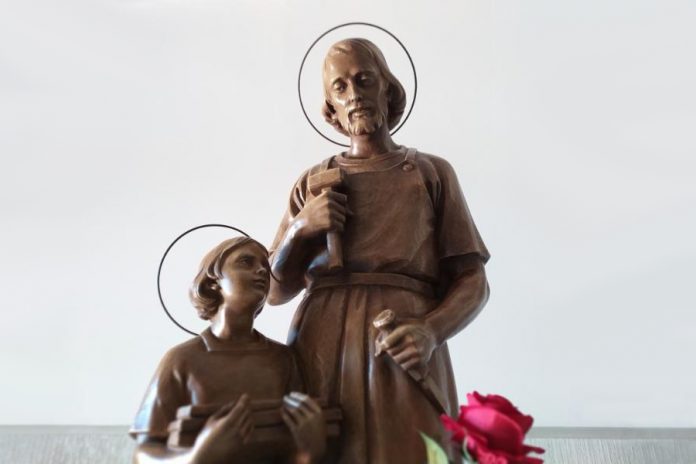Rome (Italy). On the occasion of the Feast of Saint Joseph the Worker, which is celebrated on 1 May 2022, 400 years after the death of Saint Francis de Sales, on the 150th anniversary of the foundation of the Institute of the Daughters of Mary Help of Christians, the General Secretariat of the Institute of the Daughters of Mary Help of Christians offers some ideas for reflection on the theme of work, central to Salesian spirituality and educational practice.
In the volume “Francis de Sales and Education” (LAS, Rome 2006), Fr. Morand Wirth, a Salesian of Don Bosco and a scholar of Saint Francis de Sales, reports a sentence of the Saint from a sermon outline on the theme of creation, explaining: “According to a possible interpretation that he liked to report, it is not man who guards the earthly paradise in Genesis, but the earthly paradise that guards man through work” (p. 449).
Echoing these words, St. John Bosco in the “Regulations for the houses of the Congregation of St. Francis de Sales” in Chapter V, entirely dedicated to work, states: “1. Man, my young people, was born to work. Adam was placed in the earthly Paradise to cultivate it. The Apostle Saint Paul says: ‘those who do not want to work are unworthy to eat’… 2. By work we mean the fulfillment of the duties of one’s state, whether of study, art, or profession. 3. Through work you can make yourselves deserving of society, of religion, and do your soul good, especially if you offer your daily occupations to God. 4. Among your occupations, always prefer those that are commanded by your superiors or prescribed by obedience… 6. Remember that your age is the springtime of life. Those who do not get used to work in their youth will almost always be lazy until old age, to the dishonor of their homeland and relatives, and perhaps to the irreparable damage to their own soul.” (Salesian Historical Institute, Salesian Sources. 1. Don Bosco and his work, LAS – Rome, 214, p. 578)
Starting from the anthropological conception of humanism of Saint Francis de Sales, who considers the person as the image and likeness of God the creator, capable of giving meaning to one’s life in harmony with others and with creation, Don Bosco understands work as expression of a complete humanity, fulfilled, integrated into society. Work ennobles humans, but above all, work makes society better and the world more habitable. The famous synthesis, “good Christians and honest citizens” considers work as the foundation of education.
Not only that: Don Bosco took care to give dignity to work by demanding contracts, the first in Italy, for his boys, which guaranteed them some fundamental rights. He committed himself to the education and professionalization of many young people, believing that the aptitudes of each must be developed and used. In short, work is considered a necessary condition for the future of each young person, from a decidedly modern vocational point of view.
Much more than activity, for Don Bosco work is a fundamental characteristic of the spirituality that he transmits to his children. In the famous ‘Dream of the ten diamonds'(Biographical Memoirs XV, pp. 183-187) that Don Bosco tells of having made between 10 and 11 September 1881, the mysterious person has a diamond on his right shoulder on which it is written ‘work’ and on the left another with the inscription ‘temperance’. The character also has a sash that bears the words “The Salesian Pious Society” and a sling with the words ‘what it must be’.
In Salesian spirituality, work lived with a spirit of service, humility, and righteousness constitutes the privileged way of sanctification. If we then consider that work often coincides with the educational presence or with activities in the service of education, we understand that it also becomes a way to ‘save souls’.
St. Mary Domenica Mazzarello in many of her letters also underlines the spiritual and educational value of work. In one of these, she wrote to missionary Angela Vallese, Animator of the Villa Colòn house in Montevideo in Uruguay, “You tell me that you have a lot of work to do, and I am happy, because work is the father of virtue. When we work, whims disappear and we are always cheerful. While I recommend you to work, I also recommend that you take care of your health, and I also recommend that you all work without ambition, and only to please Jesus. I would like you to instill in the hearts of all those dear Sisters a love for sacrifice, self-contempt, and absolute detachment from their own will. We became sisters to assure ourselves of Heaven but sacrifices are needed to win it. Let us carry the cross with courage and one day we will be happy.” (Let. 25)
The Saint, with the inspired wisdom that distinguishes her, connects work to a virtuous life that manifests itself in joy, which elsewhere she defines as a “sign of a heart that loves the Lord very much” (Let. 60). The dichotomy between work and prayer which, at times, afflicts the life of the FMA, is overcome by returning to the sources and freeing oneself from functionalistic interpretations of work. That is, gratuity and gratitude make work a royal activity, an expression of the baptismal dignity of the children of God.
The Constitutions of the FMA Institute connect work in its various facets, not only to temperance and therefore to ascetic commitment, but also to evangelical poverty, fraternal life, mission, prayer, and youthful holiness. Perhaps the testimony of cheerful, creative work, lived together as children, as friends, and not as servants, according to the Gospel can be a sign of hope in this time full of contradictions.




















